When NoCamels decided to start profiling people who have helped shape Israel into a hub of boundless innovation, one person we knew we would have to interview is Harry Zvi Tabor. But while Israel is mostly associated with hightech, it is in the field of cleatech that 96-year-old Tabor truly made his mark.
Born in London in 1917, and with a bachelor’s degree in Physics, Tabor dedicated his life to investigating solar energy and brought forth groundbreaking methods for its storage. You could say that like the biblical character Joshua, when Harry Zvi Tabor first came to Israel, “the sun stood still”.
It is in 1948, when Israel saw light as a modern nation, that Tabor knew that’s where he wanted to be. He flew over in 1949 and worked at the office of the first Israeli Prime Minister, David Ben-Gurion. Now, at the age of 96 and about thirty years retired, he lives a quiet life with his wife Viviane in Beit HaKerem, Jerusalem.
Despite being almost a century old, Tabor’s mind is as brilliant as ever. Perhaps that is because he seems to be at all times in perfect sync with his wife Viviane, with whom, through a lifetime of partnership, he has developed an almost symbiotic existence. When asked a question, he’ll often start answering and ask Viviane to finish for him; or vice versa. And not once do one of their mouths pronounce something the other disagrees with; they are as one mind in two bodies.
Ben-Gurion’s personal pick
Working under Ben-Gurion, himself a staunch environmentalist, the first thing Tabor did was to set up the Israel National Physical Laboratory to unify the jumble of measurement systems he encountered. “There were three systems here: British, metric and Ottoman. You’d see grocers measuring things by putting stones on scales.”
Years went by and Tabor grew firmer in his conviction that solar energy was the surest and cleanest answer to Israel’s dependence on foreign oil. In the early 1950’s, he invented the Tabor Selective Surface, thermal panels which could store the heat of the sun. This way, when the sun didn’t shine, the collected power could be used to heat water or produce electricity.
The Israeli Nikola Tesla
It was Tabor’s inventions that put Israel on the map as a global power player in the solar energy field.
In 1961, alongside his partner, engineer Lucien Bronicki, he presented the Organic Rankine Cycle turbine. “Most turbines work at high temperature (the higher the temperature, the better they were),” Tabor explains, “but we worked together on developing a low temperature turbine. This turned out to be a winner,” he smiles. The invention, though, didn’t catch on in the market. According to The Energy Library, “cheap fossil fuel prevented its widespread adoption.”
Almost all Israeli households nowadays have solar-heated water tanks based on the Tabor Selective Surface. Even the solar panels built in California’s Mojave Desert, the largest solar power installation in the world, are based on his work. “The big things which are going on all over the world, such as the solar cells made in China, are all based on his basic work,” explains his wife Viviane. Yet Tabor made no profit.
Whereas Tabor was gifted with an inventor’s mind (the Israeli Nikola Tesla, if you will), it was his partner, engineer Lucien Bronicki who had the mind for business. Bronicki, like an Israeli Thomas Edison, went on to find a business application for the low temperature turbine and created Ormat Industries. Tabor concedes: “He has more business sense than I do, so he turned it into a very profitable business for Israel.”
Beating Toyota by 30 years
Tabor didn’t stop at making solar energy a viable alternative to fossil fuel; he is also credited with inventing one of the world’s first electric vehicles in 1974. “I was responsible for the first electric vehicles tried out in Israel, because at the time I was very optimistic that we’d be able to harness solar energy in very large quantities. And transport consumes about a third of all world energy.”
Tabor’s electric car essentially did what Toyota claimed to pioneer thirty years later. He picked up on the fact that electric vehicles would be impossibly slow. Viviane explains his solution: “He created a hybrid vehicle with an energy-conserving flywheel” (“She’s a better scientist than I am…” Tabor comments at this point).
But yet again, the market wasn’t interested. “Electric vehicles are not terribly popular anywhere,” Tabor reasons, “there’s a lot of fuss made about them, but they’re slow, investment is large… The car companies wouldn’t do it. Fiat and General Motors were very interested but nobody would take it on.”
Sign up for our free weekly newsletter
SubscribeA lifetime of solar achievements
Tabor also did a lot of research on solar ponds: he reckoned the Dead Sea would be an ideal solar collector. When sunlight penetrates a water pool, it heats the bottom but convection carries the heat back up to the top. Solar pools can stop this convection, thus gathering heat at the bottom. “This never happens in a natural situation,” Tabor lectures, “that heat can then be used to drive a low temperature turbine.”
In the 1980’s, Bronicki’s company Ormat built and operated a power station based on Tabor’s papers on solar ponds. The result: one of the first power plants that produced electricity from solar power in the world.
On Harry Zvi Tabor’s 80th birthday, the International Solar Energy Society edited and published a selection of his scientific papers. This was never done before or since.
Harry and Viviane proudly showed me a copy, which can be found in most academic libraries. “The retired head of the German Solar Energy Society at the time,” remembers Viviane, “said in a review of the book that of all the work being done today in solar energy, Tabor did it first.”
Yiddisha Kopf
Tabor shared his opinions with us about the state of the nation. When asked if he has any advice for young entrepreneurs, he laughs: “I didn’t give myself very good advice, why should I give it to other people?”
Nevertheless, he has faith in Israel. Both Viviane and he believe Israel’s key to success can be summarized in two expressions: “yiddisha kopf,” a Yiddish idiom for “Jewish head”; and “ein brera”, Hebrew for “we’ve got no other choice.” Viviane explains: “When you’ve got no oil and you’ve got no water, you’ve got to think of something to develop the country.”
They hadn’t heard about the term “Startup Nation”, but after pondering on the concept, Viviane reflects: “There’s a sense of wanting to see the country succeed… That might be the secret of Startup Nation.”
With regard to solar energy, Tabor holds a sober, down-to-earth opinion: “It’s difficult to say if in the future we’ll tend more towards solar energy. Solar energy has true disadvantages; one is that when the sun doesn’t shine you don’t have the energy. The second claim is the amount: though it seems very large, when you come to collect it, it’s very small; most people don’t think it’s worthwhile so they don’t bother.”
So, is there anything this man didn’t do?
Unfortunately, the answer might be “make money.” Tabor lived to create and see his country succeed; but he never truly did that for himself. As a result, now, at 96, he lives as he always lived: humbly, quietly, still thinking. He might go down in history as a name, a name which the books will tell us is very important, but which we won’t be able to put a face to.
When NoCamels asked Tabor what he is most proud of, he replied: “Don’t know. Ask my wife.” Viviane said: “I would say creating awareness of clean energy and ridding ourselves of the complete dependence on oil. When we first got here, people thought he was crazy. Yet he created awareness which now everybody takes for granted.”
Tabor: “She’s absolutely right on that.”
Related posts

'Startup On Steroids': Civilians Raise $3.7M To Equip IDF Troops
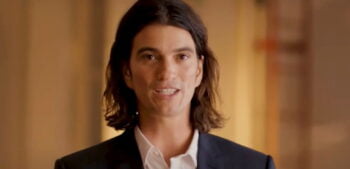
Comeback Kid: WeWork Founder Plans A Real Estate Revolution


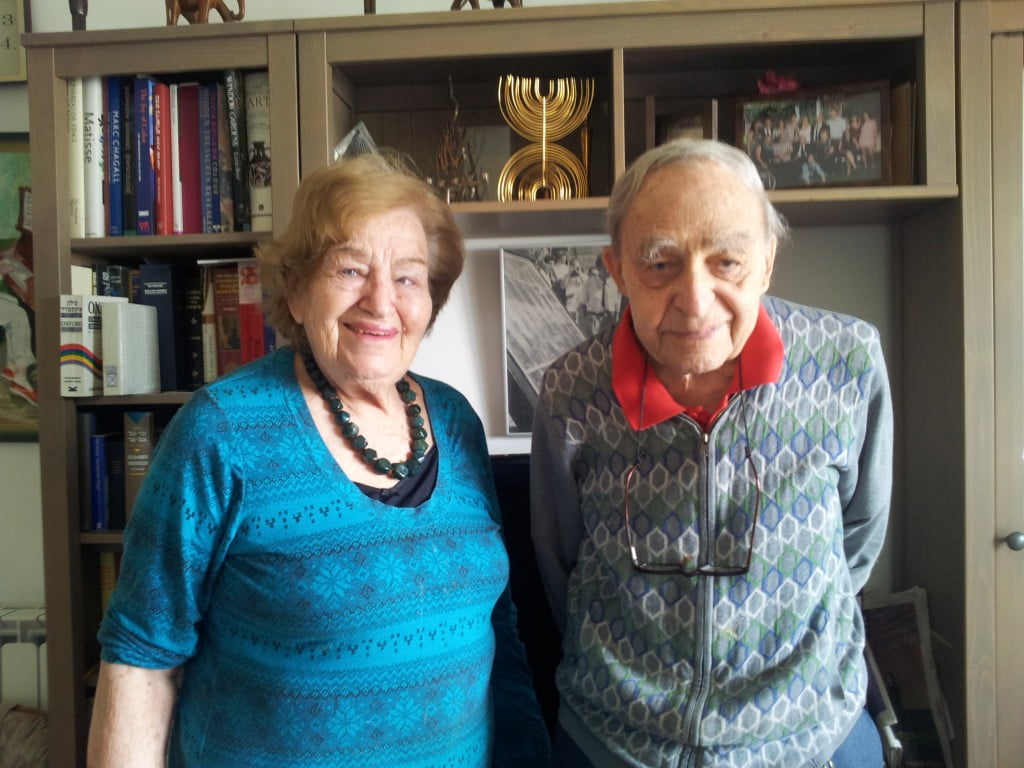
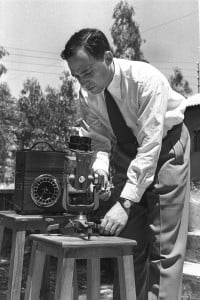
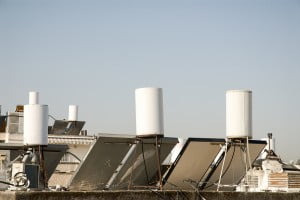
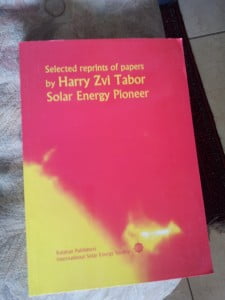
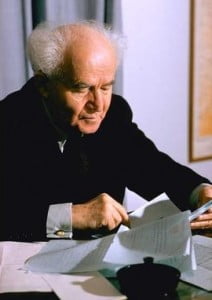
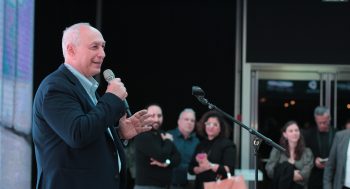

Facebook comments